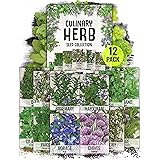LLyFreira 8x4x1FT *2 PCS Galvanized Raised Garden Bed, Outdoor Garden Box, Large Metal Flowerpot Box for Vegetables, Flowers, and Herbaceous Plants Steel Kit.
6% OffJERIA 6×3×1ft Raised Garden Bed with Support Rods,Galvanized Raised Garden Bed Kit Outdoor Metal Gardening Planter Box for Vegetable, Fruits, Flower
$39.99 (as of 14:32 GMT -05:00 - More infoProduct prices and availability are accurate as of the date/time indicated and are subject to change. Any price and availability information displayed on [relevant Amazon Site(s), as applicable] at the time of purchase will apply to the purchase of this product.)Composting is a simple and effective way to reduce food waste while creating nutrient-rich fertilizer for your garden. It’s an eco-friendly process that not only helps you save money on groceries but also reduces greenhouse gas emissions by diverting organic matter from landfills. In this blog post, we will explore the joy of composting and how it can benefit both your home and environment.
What Is Composting?
Composting is the natural decomposition of organic materials such as fruit and vegetable scraps, eggshells, coffee grounds, and yard trimmings. When these items are placed in a container or pile with proper airflow and moisture levels, they break down into a rich soil amendment that can be used to nourish plants and improve soil health.
Why Should You Do It?
There are many reasons why composting is beneficial for your home and environment. Here are some of them:
1. Reduce Food Waste – By composting your kitchen scraps, you can significantly reduce the amount of food waste sent to landfills. This helps to conserve resources and prevent methane emissions that contribute to climate change.
2. Create Fertilizer – Compost is a nutrient-dense fertilizer that can help improve plant growth and soil health. It contains essential nutrients like nitrogen, phosphorus, potassium, calcium, magnesium, and more.
3. Improve Soil Structure – Compost improves soil structure by increasing its ability to retain water and aeration. This results in better root development and reduced erosion.
4. Save Money – Composting allows you to create your own fertilizer instead of buying expensive bags at the store. Over time, this can result in significant cost savings.
How To Get Started With Composting At Home
Getting started with composting is easy! Here are some steps to follow:
1. Choose A Location – Select a location for your compost bin that receives plenty of sunlight and has good drainage. If possible, choose a spot close to your kitchen so that it’s convenient to add food scraps.
2. Purchase Or Build A Bin – There are many types of compost bins available, including tumblers, stationary bins, and worm bins. You can purchase one online or build your own using wooden pallets or other materials.
3. Add Ingredients – Start adding your kitchen scraps along with brown material such as leaves, shredded paper, or straw. Make sure to alternate layers of greens (food scraps) and browns (carbon-based materials).
4. Water And Turn – Keep your compost pile moist but not too wet. Use a hose or bucket to water it regularly. Also, turn your pile every few weeks to mix up the ingredients and provide oxygen.

Mistakes To Avoid When Composting
While composting is relatively straightforward, there are some common mistakes people make when starting out. Here are a few things to avoid:
1. Not Adding Enough Brown Material – Without enough carbon-based materials, your compost pile may become smelly and attract pests.
2. Overwatering – Too much water can cause your compost pile to become soggy and slow down the decomposition process.
3. Not Turning The Pile – Failing to turn your pile can lead to uneven decomposition and create hot spots that could harm your plants.
DIY Compost Bin Ideas And Tips
If you’re looking to start composting on a budget, consider building your own DIY compost bin. Here are some ideas and tips:
1. Pallet Compost Bin – Using wooden pallets, you can easily construct a functional compost bin. Simply stack the pallets together and secure them with screws or nails. Drill holes in the sides for ventilation and fill with your compost ingredients.
2. Wire Basket Compost Bin – Another option is to use wire mesh baskets typically found at hardware stores. These baskets allow for excellent airflow and can be moved around easily.
3. Continuous Composter – For those who want a more hands-off approach, a continuous composter might be the best choice. This type of composter uses a rotating drum that allows you to continuously add new material without having to stop and turn the pile.
In conclusion, composting is a fun and rewarding activity that benefits both your home and environment. Whether you decide to buy a premade bin or build your own, getting started with composting is easier than you think. Remember to add equal parts of greens and browns, keep it moist but not too wet, and turn your pile regularly. Happy composting!
Related Content
- World’s First Compostable Corrosion Inhibiting Stretch Film (Patent Pending) Now Available from …
- The Best Vegetables to Grow in Your Backyard This Summer
- We are all stewards of our planet
- July Garden Walk-Through: Managing Tomatoes & Tackling Pickle Worms
- How to Start Composting at Home: A Beginner’s Guide













































